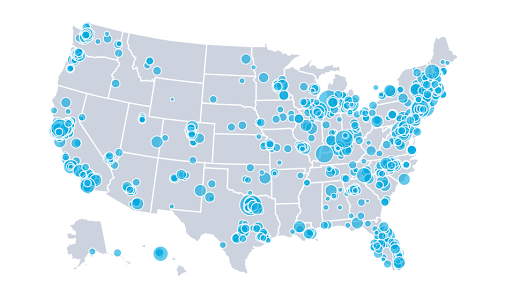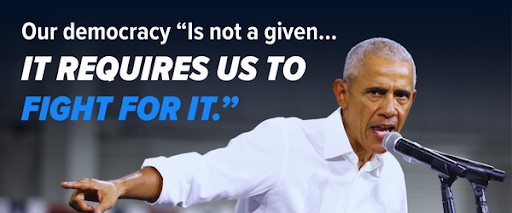Dear MoveOn member,
Last night, long-time journalist Don Lemon was arrested by federal agents for his reporting at an anti-ICE protest that took place in a church weeks ago in St. Paul, Minnesota. And now this morning, Georgia Fort, an independent journalist from Minneapolis who was also reporting at the protest, was also taken into custody.1 Black journalists on the job, doing the work they've done for years.
This is an egregious attack on the freedom of the press and a major escalation in the Trump administration's ongoing erosion of our constitutionally protected freedoms.
In this country, the press has the right to view, document, and share information with the public.2 And that's exactly what these journalists were doing in Minnesota.
But the Trump administration doesn't want us to see anti-ICE protests that inspire the masses. They don't want the spread of information that threatens the rest of us rising up against their billionaire-backed agenda.
Will you sign the petition to demand that the Trump administration release Don Lemon and Georgia Fort from federal custody NOW?
In a scathing statement, Don Lemon's lawyer pointed out, "Instead of investigating the federal agents who killed two peaceful Minnesota protesters, the Trump Justice Department is devoting its time, attention and resources to this arrest, and that is the real indictment of wrongdoing in this case."3 This administration has no intention of working on behalf of the American people to make our lives better—just the billionaires and themselves.
People are being killed, harassed, and beaten in our streets at the hands of the Trump administration. And instead of putting an end to the horrific, violent attacks on our communities and bringing justice to Renee Good, Keith Porter, and Alex Pretti, this administration is doubling down and attacking anyone who exposes and challenges them.
Sign the petition now to demand the immediate release of Don Lemon and Georgia Fort who were simply doing their job.
This is not just an attack on journalists—this is an attack on all of our protected First Amendment rights. And a recognizable strategy of authoritarians and dictators around the world. The Trump administration wants to operate with full immunity and no accountability. And attacking, eroding, defunding, and intimidating journalists and the press is their path to that reality.
Independent media is essential for exposing the truth about what's happening in Washington, D.C., and across the country. This is Trump's attempt to once again obscure the reality of what his failed administration is doing. Will you sign the petition?
From day one of Trump's second term, this administration has been hell-bent on attacking the free press. From defunding public media like NPR and PBS to banning press outlets like the Associated Press from White House press briefings to removing legacy media outlets from the Pentagon and attacking individual journalists, this administration has gone beyond mocking journalism as "fake news" but taken steps major steps to compromise the free press.4
These arrests follow the Trump administration's crackdown on protesters, including two other Black leaders who organized the anti-ICE church protest, and their silencing of free speech. From tear gas and violence to arrests, Trump is trying to intimidate and snuff out dissent. The attacks on everyday Americans exercising their right to protest and the attacks on journalists are one and the same. And we need to defend the right to freedom of speech without government punishment or censorship now—before it's too late.
The Trump administration arresting two Black journalists, Don Lemon and Georgia Fort, for covering a news event should send chills through every American. We must come together to demand the immediate release of these journalists and recognize these arrests for what they are—an attack on all of our First Amendment rights.
Add your name to the petition now and forward this email to three friends.
Thanks for all you do.
–Kelsey, Aliya, Ansa, Jaira and the rest of the team
Sources:
1. "Feds arrest 4, including Don Lemon and Minnesota journalist over church protest," NPR, January 30, 2026
https://www.npr.org/2026/01/30/nx-s1-5693756/don-lemon-arrest-cnn-minneapolis
2. "First Amendment 101: Freedom of the Press," ACLU, September 15, 2025
https://www.acluaz.org/news/first-amendment-101-the-freedom-of-the-press/
3. "Journalist Don Lemon arrested after protest that disrupted Minnesota church service," PBS News, January 30, 2026
https://www.pbs.org/newshour/politics/journalist-don-lemon-arrested-after-protest-that-disrupted-minnesota-church-service
4. "Trump's Attacks on Press Freedom Escalate: NPR, PBS Funding Cuts Explained," ACLU, August 5, 2025
https://www.aclu.org/news/free-speech/trumps-attacks-on-press-freedom-escalate-npr-pbs-funding-cuts-explained
Want to support MoveOn's work? Donald Trump's authoritarian takeover intensifies every day. But we must remember that authoritarian governments worldwide have not withstood a challenge by 3.5% or more of its people. MoveOn can reach, train, organize, and support at a scale unparalleled in the progressive movement—which we need now more than ever. Will you make a monthly donation today to power this urgent and critical organizing?
If you've saved your payment information with ActBlue Express, your donation will go through immediately:
Donate: $5 monthly
Donate: $15 monthly
Donate: $50 monthly
Donate another amount monthly
Or make a one-time gift
Contributions to MoveOn Civic Action are not tax-deductible for income tax purposes. MoveOn.org Civic Action - PO Box 96141, Washington, D.C. 20090-6141. ActBlue Civics Inc. is the merchant of record for all transactions made to MoveOn Civic Action using the ActBlue platform. ActBlue Civics Inc. receives and processes these donations before disbursing them to MoveOn Civic Action within 30 days of receipt.
This email was sent to Andra Patterson on January 30, 2026. To change your email address or update your contact info, click here. MoveOn's privacy policy was recently updated. To read our new privacy policy, click here. To remove yourself from this list, unsubscribe.









